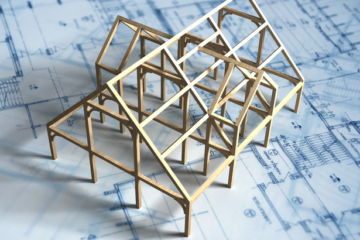It’s time to investigate into the intriguing world of Charlotte’s housing market and ponder the sustainability of the current surge in home prices. As you navigate through the dynamics of this real estate phenomenon, you may uncover hidden factors and intricate patterns that could shed light on the future stability of Charlotte’s housing market. Strap in, as we begin on a thought-provoking journey to unravel the mysteries behind the escalating home prices in Charlotte.
Key Takeaways:
- Historical trends: Examining historical data can help predict the sustainability of Charlotte home prices in the long run.
- Economic indicators: Monitoring economic factors like job growth and income levels can provide insights into the future stability of the housing market.
- Housing inventory: Understanding the balance between supply and demand in the housing market can help assess whether the current price escalation is sustainable over time.
Historical Context of Charlotte’s Housing Market
A Brief Overview of Charlotte’s Economic Growth
To understand the current state of Charlotte’s housing market, you need to be aware of the city’s impressive economic growth over the past few decades. Charlotte has transformed from a primarily textile and banking city into a diverse financial hub with a booming technology sector. The city’s population has been steadily increasing, attracting more businesses and creating a strong demand for housing. This growth has contributed to the rise in home prices in the area.
The Impact of the 2008 Housing Crisis on Charlotte
To grasp the full picture of Charlotte’s housing market, you must consider the lasting effects of the 2008 housing crisis. Like many other cities across the United States, Charlotte experienced a significant downturn in the housing market during this time. Foreclosures were rampant, and property values plummeted. However, Charlotte’s resilience and proactive measures helped the city recover faster than others, leading to a swift rebound in the housing market.
Housing Impact
Housing in Charlotte took a hit during the 2008 crisis, but the city’s strong economic foundation and proactive strategies in response to the crisis enabled it to bounce back quickly. This quick recovery laid the groundwork for the current escalation in home prices, fueled by a growing population and robust job market. Understanding this historical context is crucial in evaluating the sustainability of the current housing market trends in Charlotte.
Current State of Charlotte’s Home Prices
Clearly, the current state of home prices in Charlotte is a hot topic of discussion among both buyers and sellers. With prices steadily increasing over the past few years, you may be wondering whether this trend is sustainable in the long run. According to a recent article on Financial Samurai titled It’s Time To Start Worrying About The Housing Market Again, there are concerns about the overall housing market, including in cities like Charlotte.
The Recent Surge in Home Prices
One of the key points raised in the article is the recent surge in home prices in Charlotte. This surge has been driven by a combination of factors, including low inventory, high demand, and low interest rates. As a potential buyer in Charlotte, you may be feeling the impact of this surge in the form of increased competition and higher prices.
Comparison to National and Regional Trends
| Charlotte | National and Regional Trends |
| The housing market in Charlotte has seen significant price increases in recent years. | Compared to national and regional trends, Charlotte’s home prices have outpaced many other areas. |
To further understand the state of home prices in Charlotte, it’s important to compare them to national and regional trends. While Charlotte has experienced substantial growth in home prices, it is important to consider how these trends align with those seen in other parts of the country.
Home Prices in Charlotte
| Charlotte | National and Regional Trends |
| Continued growth in home prices may lead to affordability challenges for buyers in Charlotte. | Comparing Charlotte’s home prices to national and regional trends can provide valuable insights into the market’s overall health. |
Factors Contributing to the Escalation
Low Inventory and High Demand
For a city like Charlotte, where the economy is thriving and job opportunities are abundant, it’s no wonder that the real estate market is booming. The low inventory of homes for sale coupled with high demand from buyers looking to settle down in this vibrant city has created a competitive market. As a result, home prices have been escalating rapidly, making it challenging for many potential buyers to find affordable housing.
The imbalance between supply and demand is further exacerbated by the influx of new residents moving to Charlotte seeking a better quality of life. This surge in population growth has put additional pressure on the housing market, driving prices even higher. The lack of new construction to meet the growing demand has only fueled the escalation in home prices.
- The demand for housing in Charlotte continues to outpace the supply, driving home prices higher.
- The lack of new construction to meet the growing demand has further exacerbated the situation.
The escalating home prices in Charlotte are a direct result of the low inventory and high demand in the real estate market.
The Role of Investment Properties and Flipping
Contributing to the escalation in Charlotte home prices are the rise of investment properties and flipping in the real estate market. Investors looking to capitalize on the city’s booming economy and growing population have been purchasing properties to either rent out or renovate and sell for a profit.
These investment properties and flipping activities drive up home prices as investors compete with traditional homebuyers, further limiting the inventory of homes available for sale. The quick turnover of properties in the market also contributes to the rapid escalation of home prices, as investors aim to maximize their returns in a competitive market.
- Investors purchasing properties for renting or flipping are contributing to the escalation in home prices.
- The quick turnover of properties in the market further drives up prices as investors aim to maximize their profits.
Contributing to the escalating home prices in Charlotte is the growing trend of investment properties and flipping in the real estate market.
The Impact of New Development and Construction
Factors such as new development and construction play a significant role in the escalation of home prices in Charlotte. High demand for housing in key areas of the city has led to a surge in new development projects, catering to the growing population and influx of new residents.
High competition for these new housing units, coupled with the premium prices attached to them, has contributed to the overall escalation in home prices across the city. As more luxurious and upscale properties are developed to meet the demand of high-income residents, the average home prices in Charlotte continue to rise, making it increasingly challenging for the average buyer to afford a home in the city.
- New development projects targeting high-income residents contribute to the escalation of home prices in key areas of Charlotte.
- The high competition for these new housing units further drives up prices and makes it challenging for the average buyer to afford a home in the city.
High demand for new housing developments and construction projects targeting high-income residents are key factors contributing to the escal…
Sustainability Concerns
Once again, if you are looking to assess the sustainability of the current trend in Charlotte’s home prices, it’s crucial to examine deeper into the factors influencing the market. For a comprehensive analysis of the Charlotte real estate market, you can refer to the Charlotte Real Estate Market Overview – 2024 for valuable insights.
The Risk of Overvaluation and Market Correction
The risk of overvaluation in the Charlotte housing market raises concerns about the potential for a market correction. If home prices continue to rise disproportionately to the intrinsic value of the properties, there is a higher likelihood of a correction in the market. This correction can lead to a sudden drop in home prices, impacting homeowners and investors alike.
The Potential for Interest Rate Hikes
Risk
With the current low interest rates, the housing market in Charlotte has been highly favorable for buyers and investors. However, there is a looming concern regarding the potential for interest rate hikes in the future. If interest rates increase significantly, it could lead to a slowdown in home buying activity and potentially dampen the upward trajectory of home prices.
The Effect of Demographic Changes on Housing Demand
Demand
This demographic shift can significantly impact housing demand in the long run. As the population ages and preferences evolve, there may be changes in the types of properties in demand and the locations favored by homebuyers. This evolving landscape requires careful consideration to assess the sustainability of Charlotte’s current housing market trends.
Expert Insights and Predictions
Interviews with Local Real Estate Experts
Keep your finger on the pulse of the Charlotte real estate market by listening to what local experts have to say. Through interviews with seasoned real estate professionals in the area, you can gain valuable insights into the factors driving the current surge in home prices. Experts may provide perspectives on various aspects, including economic trends, job growth, population influx, and new developments shaping the housing market.
Analysis of Market Trends and Forecasts
Trends in the Charlotte real estate market can offer critical cues about its future sustainability. By analyzing market trends and forecasts, you can better understand the forces at play and make informed decisions. Look out for indicators such as supply and demand dynamics, interest rates, affordability levels, and the overall economic climate affecting home prices in Charlotte.
Understanding the underlying data and projections by real estate analysts can give you a strategic edge when navigating the Charlotte housing market. By delving into market trends and forecasts, you can anticipate potential shifts, assess risks, and identify opportunities that align with your long-term investment goals.
Government Policies and Regulations
The Impact of Zoning Laws and Land-Use Regulations
After seeing a surge in home prices in Charlotte, you may wonder about the sustainability of such growth. One crucial factor that influences the housing market is government policies and regulations, particularly zoning laws and land-use regulations. These regulations determine the type of properties that can be built in specific areas, affecting supply and demand dynamics.
The restrictions imposed by zoning laws can limit the available land for development, leading to higher prices due to scarcity. Additionally, stringent land-use regulations may increase construction costs, further driving up housing prices. Understanding the impact of these policies is imperative in assessing the long-term sustainability of Charlotte’s real estate market.
The Role of Affordable Housing Initiatives
One aspect of government intervention in the housing market is through affordable housing initiatives. These programs aim to provide housing options for low to moderate-income individuals and families, ensuring that housing remains accessible and affordable for all residents. By promoting affordability, these initiatives can help create a more inclusive and balanced housing market.
Regulations surrounding affordable housing can influence the overall health of the real estate market in Charlotte. By fostering diversity in housing options and ensuring socioeconomic inclusion, these initiatives contribute to the long-term stability and sustainability of the housing market. Understanding how these programs interact with market forces can provide valuable insights into the future trajectory of home prices in Charlotte.
To wrap up
From above analysis, you can see that the escalation in Charlotte home prices is driven by various factors such as low inventory, strong demand, and low interest rates. While this surge in prices has been beneficial for current homeowners looking to sell, it raises concerns about housing affordability for prospective buyers. In the long run, sustaining such high levels of home price growth may lead to housing market instability and price bubbles that could burst, resulting in financial losses for homeowners.
As you consider the sustainability of Charlotte’s escalating home prices, it is crucial to monitor factors like supply and demand dynamics, mortgage interest rates, and economic conditions. Keeping a close eye on these indicators can help you make informed decisions about buying or selling a home in Charlotte. Ultimately, the long-term sustainability of home prices in the city will depend on how these factors evolve and interact in the future.
Q: What factors are contributing to the escalation in Charlotte home prices?
A: Multiple factors are contributing to the escalation in Charlotte home prices, including low inventory levels, high demand from buyers, low mortgage rates, and population growth in the area.
Q: Is the escalation in Charlotte home prices sustainable in the long run?
A: While the current escalation in Charlotte home prices may continue for the near future, it is uncertain if it is sustainable in the long run due to potential economic factors, market fluctuations, and affordability concerns.
Q: How does the escalation in Charlotte home prices impact potential buyers?
A: The escalation in Charlotte home prices can make it challenging for potential buyers to afford homes, leading to increased competition, bidding wars, and potential difficulties in finding affordable housing options.
Q: What are some strategies for potential buyers to navigate the escalating home prices in Charlotte?
A: Potential buyers can consider expanding their search to areas outside of the city center, exploring different financing options, working with experienced real estate agents, and being prepared to act quickly in a competitive market.
Q: What are some potential risks associated with investing in Charlotte real estate during a period of escalating home prices?
A: Some potential risks of investing in Charlotte real estate during a period of escalating home prices include potential market corrections, overpaying for properties, difficulties in selling at a profit in the future, and economic downturns impacting property values.




